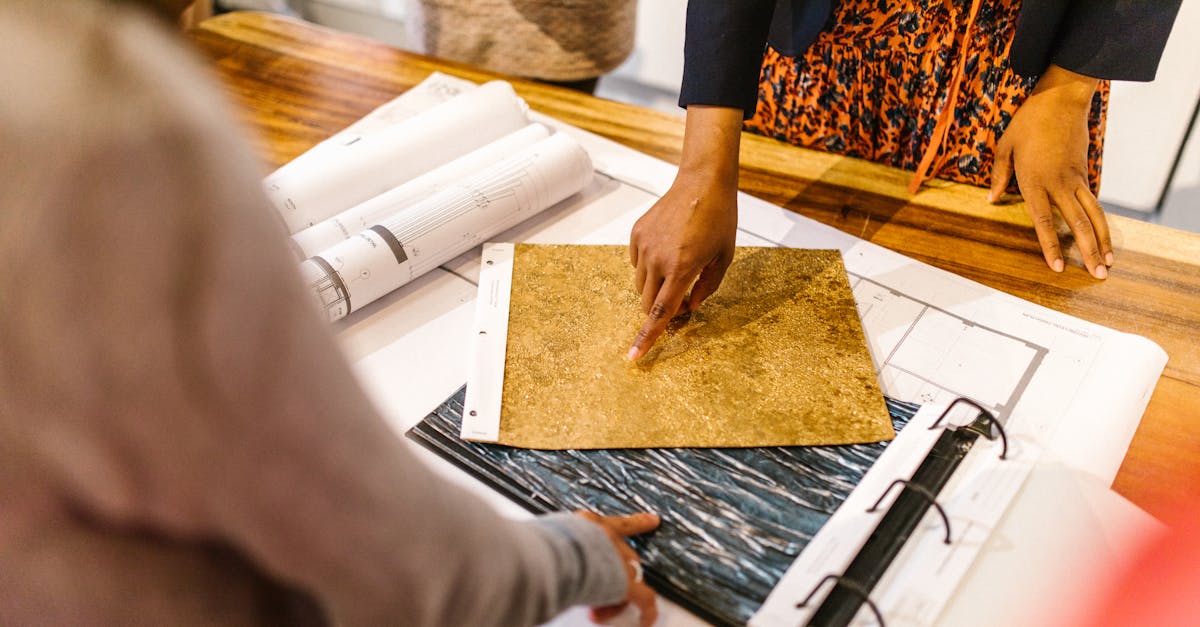
Flooring Selection
Table Of Contents
At Rrepairelpasotx, our flooring selection service is designed to help you choose the perfect flooring option for your space. Our experienced interior designers will work closely with you to understand your personal style, budget, and functional requirements to recommend the best flooring solution. Whether you prefer hardwood, laminate, vinyl, or tile, we have a wide range of options to choose from. With our expertise and attention to detail, we can help you achieve a beautiful and practical flooring finish that will elevate the look and feel of your home or office. Trust Rrepairelpasotx for all your flooring selection needs.
Understanding Different Flooring Materials
Carpet, although once a popular choice, has somewhat fallen out of favour in recent years due to its high maintenance requirements and susceptibility to stains and wear. However, it still remains a cozy option for bedrooms or living rooms where comfort is a priority. Engineered wood flooring is a durable and cost-effective alternative to solid hardwood, offering more versatility in terms of installation locations, such as basements and bathrooms, where moisture can be a concern. Its veneer of real wood provides an authentic look without the hefty price tag, making it a popular choice for many homeowners looking to achieve a classic hardwood aesthetic within a reasonable budget.
Laminate flooring is another budget-friendly option that perfectly mimics the appearance of hardwood, tile, or stone, making it a versatile choice for any room in the house. Its easy DIY installation process appeals to many homeowners looking to save on installation costs. For those seeking a waterproof flooring solution, vinyl planks or tiles offer a durable and water-resistant option suitable for high-moisture areas like kitchens and bathrooms. Vinyl flooring has evolved over the years, now available in a wide variety of styles and colours to suit different design preferences, making it a practical and stylish choice for many households.
Tile, Vinyl, and Laminate Varieties
Tile, vinyl, and laminate flooring offer a wide range of options for homeowners looking to elevate the aesthetic and functionality of their spaces. Tile flooring, including materials like ceramic, porcelain, and slate, provides durability and versatility, making them ideal for high-traffic areas such as kitchens and bathrooms. Vinyl flooring, available in various styles ranging from wood-look to stone-look finishes, offers a more affordable and easy-to-maintain alternative that replicates the look and feel of expensive materials like hardwood or marble. On the other hand, laminate flooring combines the beauty of real wood with the convenience of a synthetic material, making it a popular choice among consumers seeking a balance between cost and durability.
For those seeking eco-friendly options, linoleum flooring stands out as a sustainable choice made from all-natural materials like linseed oil, cork dust, and resin. Its resilience against water damage and mildew makes it an ideal option for areas prone to moisture, such as laundry rooms or mudrooms. Additionally, bamboo flooring has gained popularity for its rapid renewability and durability, offering a stylish and environmentally conscious alternative for homeowners looking to reduce their ecological footprint. Whether selecting vinyl planks for a contemporary loft, opting for laminate tiles in a family-friendly home, or choosing elegant ceramic tiles for a luxurious living room, the variety of tile, vinyl, and laminate options cater to different lifestyles and design preferences, ensuring that every homeowner can find the perfect flooring solution to suit their needs.
Importance of Proper Installation Techniques
Proper installation techniques play a crucial role in the longevity and functionality of your chosen flooring material. Each type of flooring, whether it be tile, vinyl, laminate, or hardwood, requires specific installation methods to ensure a seamless and durable finish. Nailing, stapling, and floating are commonly used techniques that must be executed with precision and care to achieve the desired result.
When installing flooring, attention to detail is paramount to avoid costly mistakes and potential damages in the future. Ensuring the substrate is clean, level, and dry before installation is essential for a smooth and successful process. Proper acclimation of wood products, such as hardwood or laminate, to the environment's temperature and humidity levels is also vital to prevent warping or buckling over time. By investing in the right installation techniques and taking the necessary precautions, you can enjoy beautiful, functional floors that stand the test of time in your home.
Nailing, Stapling, and Floating Methods
When it comes to installing hardwood floors, there are various methods that can be utilized, including nailing, stapling, and floating. Nailing involves securing the floorboards to the subfloor using nails driven at an angle through the tongues of the boards. This method is commonly used for solid hardwood flooring and provides a sturdy and permanent installation.
Stapling is another popular method for installing hardwood floors, where staples are used to secure the floorboards to the subfloor. This method is often faster than nailing and can be less expensive. On the other hand, floating floors are not attached to the subfloor but are instead installed over a foam or cork underlayment. This method allows for more flexibility and is often used with engineered wood products. Each installation method has its own advantages and considerations, so it is essential to choose the one that best suits your flooring material and lifestyle.
Enhancing Home Value with Quality Flooring
Enhancing the value of your home through the selection of quality flooring is an essential aspect of interior design. Flooring materials such as hardwood, bamboo, or high-quality tiles can significantly impact the overall aesthetic and market value of a property. Homebuyers are often drawn to properties with durable, stylish flooring that complements the overall decor and design of the space. Investing in quality flooring not only enhances the visual appeal of your home but can also provide long-term durability, especially in high-traffic areas such as living rooms, kitchens, and hallways.
Beyond aesthetics, quality flooring can also contribute to the overall sustainability and environmental friendliness of your home. Opting for environmentally sustainable flooring options such as bamboo or cork can appeal to eco-conscious buyers and showcase your commitment to sustainable living. Additionally, well-maintained flooring that is free from scratches, stains, or damages can help increase the perceived value of your home during resale. By considering the long-term benefits of quality flooring, homeowners can enhance both the aesthetic appeal and market value of their properties.
Investment Benefits and Resale Advantages
Investing in high-quality flooring can deliver significant benefits beyond just aesthetics. Quality flooring materials not only enhance the beauty of your home but also increase its overall value. When choosing flooring materials for your home, consider options that are durable, easy to maintain, and have a timeless appeal. Hardwood floors, for example, are a popular choice for many homeowners due to their durability and classic look. By investing in quality flooring, you are not only increasing the equity of your home but also ensuring long-term reliability and durability.
Resale advantages come into play when you decide to sell your home. Potential buyers are often willing to pay more for a home with high-quality flooring as it adds a sense of luxury and sophistication. Upgrading your flooring can result in a higher resale value, making it a worthwhile investment in the long run. Additionally, quality flooring that is low maintenance and aesthetically pleasing can attract more buyers and help your home stand out in a competitive market. By choosing durable and visually appealing flooring materials, you can enhance the overall appeal of your home and increase its resale value.
FAQS
How do I choose the right type of flooring for my home?
Consider factors such as the room where the flooring will be installed, the level of foot traffic, your budget, and your personal style preferences to choose the best flooring material for your home.
Is it important to have proper installation techniques for flooring?
Yes, proper installation techniques are crucial for ensuring the longevity and durability of your flooring. It is recommended to hire professional installers for a flawless finish.
What are the different methods used for installing flooring?
Flooring can be installed using methods such as nailing, stapling, or floating, depending on the type of flooring material being used and the subfloor conditions.
How can quality flooring enhance the value of my home?
Quality flooring not only improves the aesthetics of your home but also adds value to your property. It attracts potential buyers and can lead to a higher resale value in the future.
Are there any financial benefits to investing in high-quality flooring?
Investing in quality flooring can provide financial benefits in terms of increased property value, lower maintenance costs, and improved energy efficiency, making it a worthwhile long-term investment.






